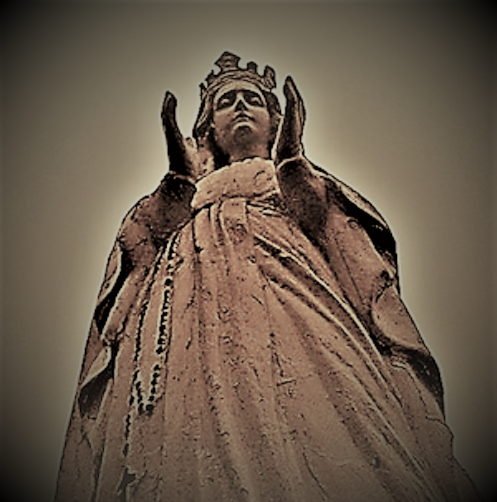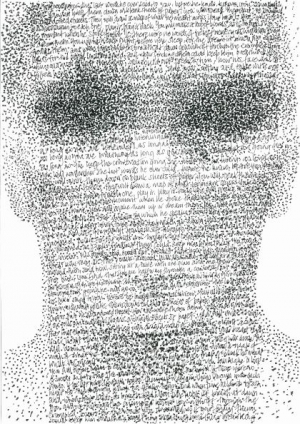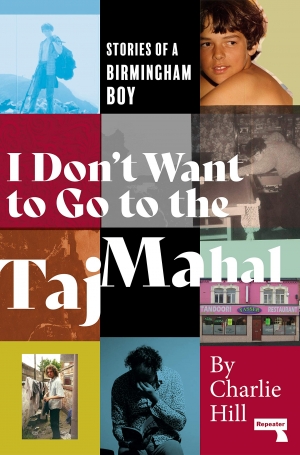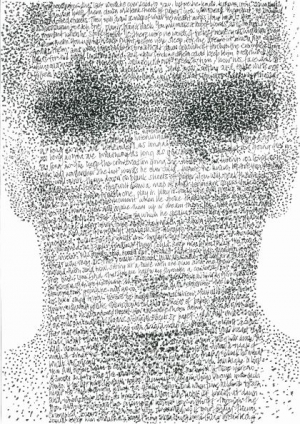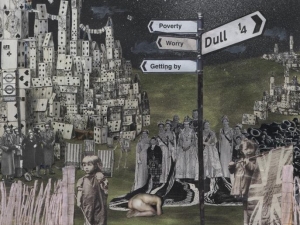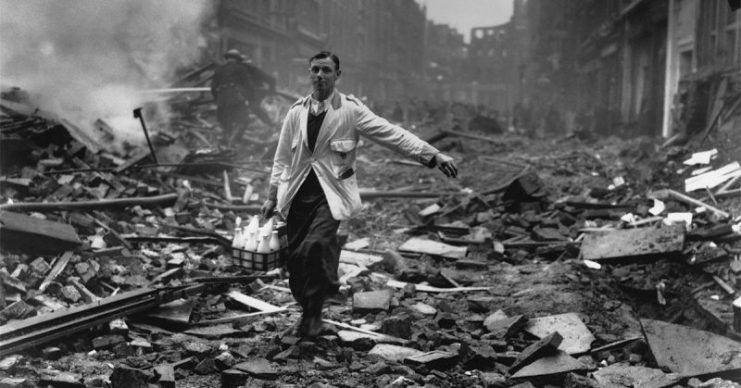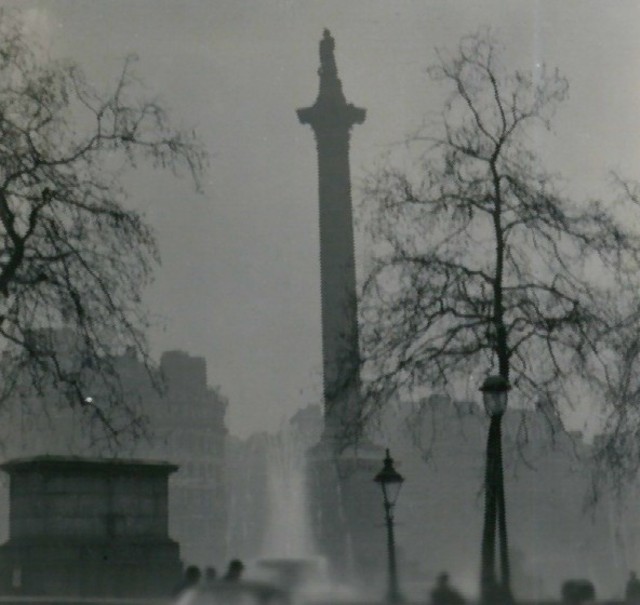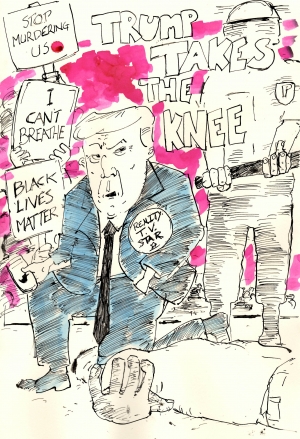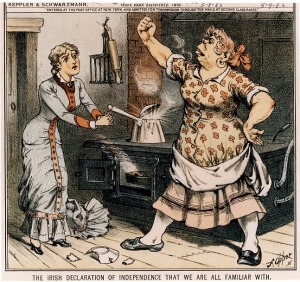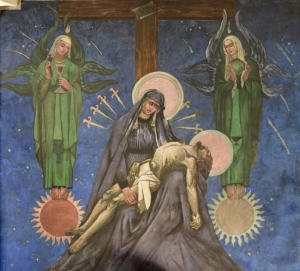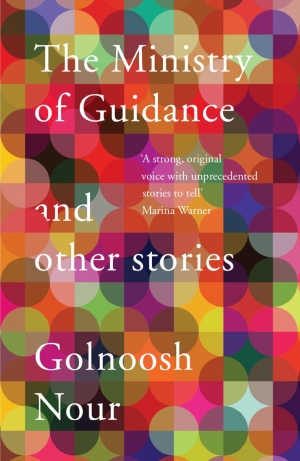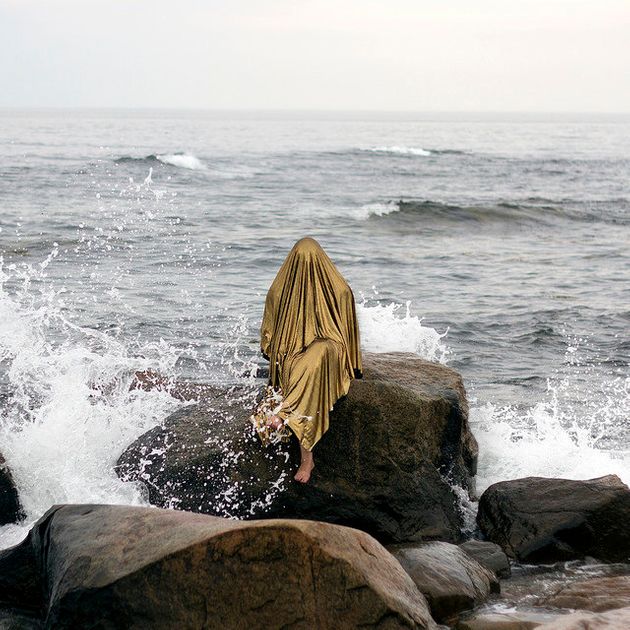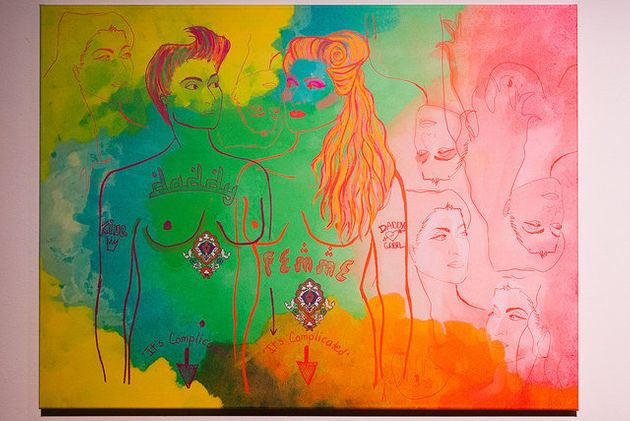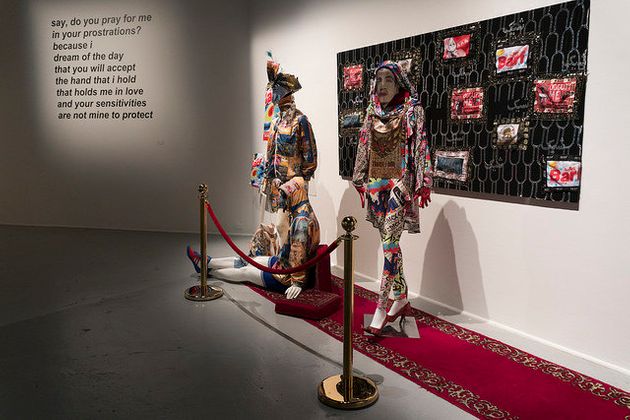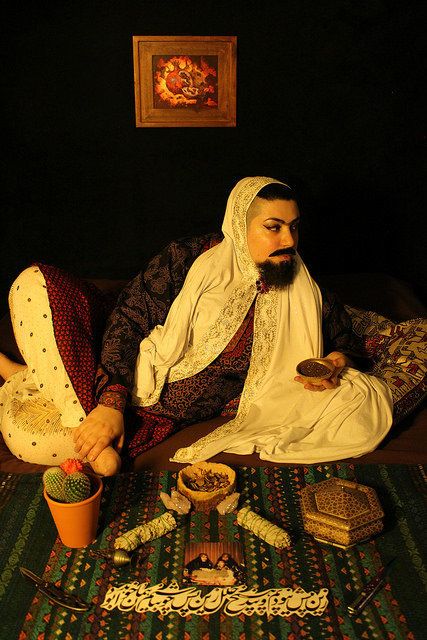Red Biddy
by Fran Lock
red biddy, noun, a mixture of cheap wine and methylated spirits.
biddy, noun, of unknown origin; probably influenced by the use of biddy denoting an Irish maidservant, from Biddy, pet form of the given name Bridget .
‘All you young people now take my advice / Before crossing the ocean you’d better think twice’ – Jimmy MacCarthy
.1
ever hear the one about the man with two shadows?
one was a matador’s cape, the other a thin girl cut from the queasy cloth of her own bad self. this is a monday, mind. fire weaving hawkweed into hacking cough. he slipped his plimsolls running. leapt the fence. spread his hand to find his cocksure fortune full of thorns. took his torn palm into town, tarried his swaggering luck through lanes. bantam boy, bantering, jaw-jacked scally in the jackdaw dawn. his aggie ma, hauling his name across coals all the days of her life, till it rose on the roof of her mouth like a blister. scar of his slingshot pedigree. he’d never come back, each delinquent sinew stretched its short electric measure. said his going ripped the lining from her eyes. if sons were sovvies, silvered in the silk-purse of her seeing. said she wore his beaming counterfeit smooth across one side. and oh, he was the ether’s genii then, dreamt his chequered pleasures, walked each night towards the guillotine of sleep with baby steps. he was away, trailing his lustrous brawn through forecourts, car parks, foreclosed farms. following the bitter ribbon of the road to the north, to the west, to the ford-mouth of the hostings, to the old men buckled by husbandry, gingham girls in the grip of small town non-event. and oh, that canny lad, that diamond bruiser, that one time baron of ballinasloe –
and this was the man with two shadows? tell me.
i was coming to that. always i was coming. how he slept under hedges. his shadow was his pillow and his bindle and he carried the whole world knotted up in one wet corner of it. how he was spring’s pilgrim, hobnail apostle of the copse and culvert, anything cooked in a smoky hole. and it was thin going, till the whole dark sea laid out before him like a lead apron. and he paid his passage in coarse words for common objects, and his passage was long, and he slept standing up like a horse. how sometimes you’re not even moving, how a hard road travels the length of a man, his romanestan swelling and stretching inside. and he slept on the docks in his shadow, bound in its red-green wastrel cloak. and blue. when a man’s hand is his flag, and you can read his shadow like the grimoir of his poxy fate, and his mother’s voice in an auger shell, on and on, remorseless and rokkering. god. in liverpool they tell him his gold tooth’s got by alchemy, and they try his gilded tongue for passing twice through a wishing ring, and they sharpen their telepathy on the edge of a desk, and cut down the tree on which his mother carved his birth, and his mother’s voice ran silent then, as a stream runs mud.
is all this true?
yes. and his first shadow was a sling, and he carried his arms and his hunger in it. and his own mother wouldn’t know him from a scarecrow. and they called him scrub tinker, not even fit for sorting scrap. and he chewed all night on his daddy’s blackberry blood, mulled her pale face too, poor cow, who bore her grief like a basket of knives and could not love him. he could not sit still. he would not be work of many hands. chased from verges, grim billets of wasteland. wanted away and he ran. but that tongue, lord, inching through the soily hours of darkness like a worm, has its own earth-cravings, must speak brick-dust dirt to loam, find a way to sing.
and of the other shadow?
saw her by the union chapel, hawley road, driving spears of heather through the plush lapels of enemy gents like she wanted them staked and dead. they were frisking her lingo for a telltale cluck when she spat in their faces: talk to me about resilience, i’ll grind your bones to make my bread. pikey. worse. poshrat, answers to the suck of air between a plumber’s teeth. and has no name. cuts her hair to a cold hearth breathing soot, and doesn’t care. she has no tongue, she does not eat. nurses pry her teeth apart. all they find inside is another man’s fist.
this shadow is dangerous.
yes. but how like himself. and takes his hand. flailing his workshy meat in a warehouse. body, a deviant dance against gravity. hard life. lucks into sudden colour when she is near. a gallon jug of thunderbird, a tin of tea. an ambulance racing somebody to somewhere in the painterly night. mad alan with his rat tattoo, gone off his trolley in a squat. the waify and immaterial few, whose high a rome where all these mainline mazes lead. these lesser roads. these vandals and these goths. london is a cloned ghost mouthing her sweet nothings in every window. is a window for every ghost. the squat, that squat, that garrison of discontent. the rec ground gone to nettles, mad behind paddington, sweating out its lairy yellow threat, its green seam split, its ambush of weeds. affrighted edge, the paring blade of anywhere. london tests her raging mettle, his. lies with his back pushed into the earth, holding the whole world up by its ripped mattress. becomes a bootleg christ, sprawled and gormless against the plank he’ll walk to crucifixion. oh, she says there’s beauty in a daggered light like strangulation. folds him, strokes the clammy threads of his disorder smooth. bathes him in another name. not the moniker that swaddled him, but something rushy, wet. fixes his blood to hers with a razor’s partial grace. her fingers falter holes in his lobes with a pin till he’s pricked all over like a grubby bud of lace.
but how did they become tied?
i was coming to that. always i was coming. all her life, she said, she was smeared across the threshold of some man, worn in his buttonhole, drowned in his poacher’s pocket. and she ran too. made herself anew from a ragbag of silky fixings. scraped herself from barrel bottoms, sucked the pennies out of fountains clean. read borrow. said he’s well named and vexed his mildew-muddled ghost in stoppered bottles. read the world with gleaning eye, said oh, i rue the day i dipped my biddy tongue in your foul cant. england, where the torchlight traipses over her. where her pavee ariettas are the meat the organ grinds to tuneful mince. and spoilt. she wanted the world. not to treasure, but to smash. to master its daggers and turn them back on the hands that held them, to drag their bleeding précis through her patois gutter gorse, each faltering declension a barb in their moral hide. he was too hurt. wanted the voodoo of spoons, the sweet numb sleep, and a lasting drink of red. his vision drizzled into constellation. they have no word for stars, borrow said. oh, but please, a fulsome argot of moons. she tied him with her own cut hair. with shrove candles, baked apples, their subtle fragrance sealed in heat, her own wrists swimming in beeswax and blood, the golden sear on greyish meat, the burning of bundles of sage. flimsy bonds. shapeless kite, mithered by wind. barely snagged at her ravelled edge.
so they became torn?
in secret he’d fed his first shadow. it grew so big, shaking its rusty antlers. wran jag mask, dancer at the wake. shadow number one now a furbearing fluke of pain with his mother’s face. in his dreams the camp and the last of the fire, eating through sleep’s thin celluloid strips. and london’s vicious bridges, bearing his weary guilt on their backs. coward, they called him, cunning. work was long when work was to be had. and morning’s fearsome cold enough to drive the tattoos from his skin. he had no words, but those words going forth by day on the book of himself. how rocks tear the underbellies of boats, a thought of home would surprise him. where home is not a shore but a tongue that beg to wag. ganger, gavver, gaffer, they flattened him to paddy, poor paddy, a word with a chaser of bile brought forth from your own loathe gut. the north and its blethering fevers. a stubby finger stabbing his chest at closing time: which side are you on? until home is a chandelier sinking to the bottom of a wreck, is a dropped needle scoring a song through dusty shellac.
and so?
he ran. at first she clung to his back like a hump of his own dull flesh, but he slipped her when she was stringing her words into makeshift bandoliers some throbbing morning. how the last thing she said with a look like getting straight was i don’t know how to help you. and he was going back. and she was eating the night into abstinence. her tongue could cut water. his formed a wick trimmed especial for poison tallow.
and so?
he drank. he died.
and so?
you know. that look on her face, that body all lithe and pious, poised when you ask her where she’s from to rip your fucking throat out. you know full well. when she sits still and throws a sundial’s shape across paper. yes. did you hear the one about the woman with two shadows?
The older Biddy comes in three varieties: a sturdy, plain, bossy woman with a broad face, pug nose, a topknot and beefy forearms; a squat, simian-featured woman with a grizzled muzzle and big feet who is given to helping herself to household resources and to supporting Irish revolutionaries; and most simian of all, Biddy Tyrannus, an enormous menacing figure who threatens her employer... – Maureen Murphy, Bridget and Biddy: Images of the Irish Servant Girl in Puck Cartoons 1800-1890

.2
will it all come good?
unlikely.
when will it all come good?
hers is the face of adversity, an adverse face, hung from her head like a horse-brass. this simian biddy is the stove’s hot doppelganger, matriarch of cloves. fire puts out its tongue to taste the brightness in her eye. kitchen-smith, sucker-up of pedant sauces: louth’s gunpowder physic. lemongrass, then pepper, thyme. this to ward of fever – honey-stave – and this to do god’s work. thumb the subtle gills of wild shiitake wide, and plumb the tureen’s teeming depths. her stock contains bestiaries, vinegar multitudes. pick the demerara layer from sleep. she does not sleep. can balance her reflection in a brimming spoon. it is not wood she’s burning, it’s evidence, until her conscience runs as clear as her soup. ever bust a knuckle on a side of beef? hold up the hollowed-out slippers of fish, as if for some cinderella? studded dismal bolts of dough with rosemary and sage? seen yourself in a sheet of bonfire toffee and wished you could die, just die? she is my dream, her and her calendar of tatties, my fate. running round the covered market like a minotaur, termagant for oranges. the butcher sells her porcine sawdust prisoners, tied together at the waist. alone, she rubs the patchy nap from a velvet word like fealty, soaking her feet in a cracked plastic bowl.
won’t she ever be free?
of what? famine wastes the figurines she’s polished them so hard, this simian biddy. purified the puffy faces of their children with her own fenian spit. outside, the plum trees, sagging with sweetness. a white rooster strutting like a prison snitch between the condemned cell and the strawberry beds. she’s not immune to pain, it’s what the lower orders have in lieu of conscience. slipped disks and twinges. golem of the sink. how one time she bit the head from a china shepherdess, she was so angry. they
pretend to be afraid of her. she’s draining the grease from a skillet like a sawbones bleeding a vein. they pretend to be afraid. motes of brackish coffee circle the plug, and jeyes fluid worries her gloves of reddened flesh to temper. was your name ever a stone in your earshot? did you make a crown of poet’s laurels from leaves of sweetheart cabbage? will your shape ever shuffle in the memory of mastiff dogs? are your caresses cudgels? do you save the stubs of candles? have you balled your gridlocked fists by your sides, while smart rejoinders breed in your apron pocket like skinny ferrets?
was it always so bad?
no. and that’s the hell of it.
will it always be so bad?
scrubber. skivvy. scullion. drudge. let me answer your question with a question: have your lips been numb and blue from biting back a grudge? and have you ever had to separate the chicken from the pillow? are you a simian biddy? think carefully. could you hit your boss so hard you knock the dandruff from his roots, the spinach from between his teeth? could you pull a corset tight enough to crack a rib, to cut her damsel’s waist in two? have you cleaned her house? has she wrinkled her nose at your ripped raw skin? does every third trip to the shops end in belligerent fisticuffs? well, there you are. she is my dream. she has tied on her face with a permanent scowl. she has fashioned her ringlets from peel. in the heel of her boots she has hidden the hair of her enemies. has seasoned their bisque with her menstrual blood, has blown her nose on their scented towels. don’t laugh. weak sun. its lackpenny pendulum sets her in motion. you could eat your dinner from this hardwood floor. oh, her sleeves are wide enough for silverware. you’ll not catch her concussed by accusation. no grovelling apology. and she has smuggled mahogany sideboards out under her skirts, has skimmed the cream with her tongue, has smeared her aching legs in your quack balms, has spiked your patent specifics with ground up glass. in her tenement, potsherds glint on a gimcrack mantle, and the fire curls the edges of photographs. mildew, and at night the stains turn into sons. her lovely boys. pictures pinned to cheap emblems of wilderness: mummified sprays of heather. their dead eyes gleam like toys.
biddy, noun
1. adult female chicken
2. young bird especially of domestic fowl
3. generic for an Irish maid
4. derogatory slang term for women
5. an elderly woman, regarded as annoying or interfering
6. slattern or prostitute
or
7. from the Celtic Brigit, meaning ‘exalted’.
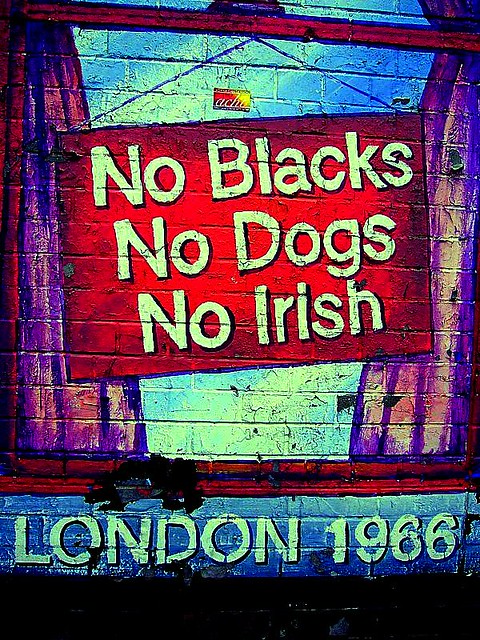
.3
this was her mountain, yes?
yes. where women are not killed so much as turned to birds.
and this was her name?
they made her a cipher for livestock. penance of cutthroat sex. they said her name so that it sounded like a splayed hand being soaped. they wrote papers about her, then slept, twin hares jugged in a thick indifference. talked about the time his cigarette made freckles. and her voice spilling its own peculiar quarrel. a language so wide her teachers removed their teeth with pliers.
when?
time of wiping his hands on a new growth of grass. time of sudden crack!s sending shockwaves through a shadow and it breaks apart as starlings. time of schemes for robbing the rainbow’s end, when, up all night, she’d known them talk their teeth to air. time under a bridge. time of methylated alchemy. time of magpies, little hitmen, cocking a song at her temples. time of swallows, martens, every feted thrush. time of blackbirds, lilting their thrifty waste not warning to the formal dawn. time of music, pushing up through london’s sodden bedrock, of bleeding in a moshpit, ecstatic as a sky on fire. time of women made from matchsticks, struck against the concrete walls of laundries. time of green grows the lily-o, and a rash on her hands from pulling up banes and worts by the root. time of skips and bins. time of fireworks tied to a cat’s tail. time of ritual diminishment in a rural church, and the fuchsia going psycho where they scattered his ashes. time of you can lead a horse across the border but you cannot... time of screwing to fusion with the windows open in venice no less. time of a word coming loose with the give of elastic in an ankle sock. time of rinsing their spit from her hair in a school shower. time of saviours and hatemail and crying like a caravan on fire. time of the human league singing leb-an-on! belfast, by bony m. time of cher doing gypsies, tramps and thieves, and the boys at the bus stop doing gypsies, tramps and thieves until she riddles their leader’s lip into blood. time of no time at all, long cycles of neglect and grind. time of flies on ruined fruit. time of skinning a knee in the stonebreakers’ yard. time of lead lifters waxing their aerial conjuries to angel. time of murals with the eyes of mediaeval portraits, following you from one end of an alley to another like a mad ancestor twice removed. time of under the counter contraception, of bootleg records in brown paper bags, they don’t play our songs on the radio, etc. time they staked a resurrection gate above the telluric pulse of her tongue. time of bobbed apples and him standing heliocentric in a system of charmed bees.
when else?
a seduction of humming wires leading her on to cities and cities and cities. honey-buzzard, feathered desperado, shrieking from a derelict watchtower. tart notes of quince and burning charcoal. and kiss his intemperate headlong under the juvenile willow like outlaws once. when love’s liquefaction fails her, and she sulks in stalemate’s sackcloth tearing hair. but also her gorgio husband’s back in the bed when she could spread his majesty like marmalade, loveliest mensch. most of all, though, it is the nonsense of his coffin, a puzzlebox unlocked only in the mineral tedium of sleep.
she went far from home.
with blunt eyes, yes. and says you’d be amazed, when they’re all laid out, just how many bones a body contains.
so far from home?
but you know what they say? home is the lining of a coat. when you spread it out you’re hanging your map on a branch. these territories will jut and suck and mushroom under any hand that tries to rub them out.
but can she live without her mountain?
yes. and no. tomorrow the gangrenous forest-future, making poets of us all. is hamlet’s cod philosophy printed in a christmas cracker. is a million mouths begging the bare city bare. she’ll be alright. she can’t unlearn the black anchors of this arms, but sees how the tattoo parlour has emptied its anchors in favour of rainbows and butterflies, the gnomic allure of letters in a language no one here can speak. if she had the needle. if she could sew one foible phrase to her skin, it would be hunger, or pivot, or sliabh.
can the mountain live without her?
a name is what we measure the dead against, rolling them out like bolts in a crowded bazaar and crying our wares to the vaulted roofs of churches. there are only proddy churches here, immaculate and empty, the hollowed-out volcano lairs of bond villains. what i mean is, a mountain is a kind of scar. there are the scars of harm and then there are the scars of loving too well. biddy’s been singing his name through this dizzy imperial city long time. she knows a rainbow isn’t painted or la-la-ed but walked. she’s a survivor. see her crooked teeth catch light, their irregular plates pushed into a smile.
